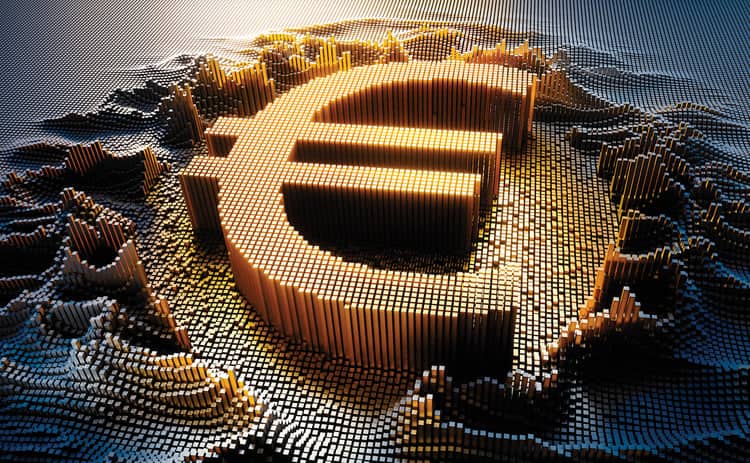The issuance of a digital euro may become the most important economic event of the last hundred years, depending on its design.
The header statement may seem exaggerated, but the point is that we can create entirely public and risk-free digital money for the first time in history. We haven’t seen such a significant change since countries prohibited commercial banks from issuing physical money. That happened in the 19th century. The prohibition of the States had to do with the economic collapses produced by the defaults in the payment promises of the credit institutions. This time, the debate is different, as most money is already digital and represented in book entries.
Digital Euro, the economic event
However, the essence is the same: return the ability to create money to the central bank and remove this power from the commercial banks. It is worth remembering that commercial banks are currently responsible for producing 90% of the money supply that surrounds us. Why a digital euro? The most important reason is the democratic aspiration for risk-free money to avoid economic crises.
A new type of digital money would be created, backed by a central bank independent of private economic interests, and can represent all citizens. In this context, the digital euro would be sovereign and risk-free. They would reach people through a wide range of financial intermediaries. All of them are authorized by the European Central Bank (ECB) to hold and store digital euros.
This money should not have a negative interest rate, as it would lose value over time, harming citizens’ ability to save. With a fully public digital euro, the ECB could control its monetary policy much more effectively by depriving banks of the ability to create private digital money.
Protections for private money
In the case of an ECB-issued digital euro, there would be no need to increase or maintain current protections for private digital money. The money would be safe and backed by the ECB. An issue that could benefit the EU’s weakest countries by making it possible to offset country risk. Also, with the digital euro, there would be a clear differentiation between the money issued by the ECB, the payment services sector, and the companies financing companies and households.
The money would be a public good, allowing savings, payment services market liberalization, and entry of new players. With homogeneous regulation on money laundering and terrorist financing, for example, rewarding technological and financial innovation.
In this scenario, stablecoins could be prominent, provided they are well-regulated and backed 100% by public money. Stablecoins could significantly benefit innovation, competition, and financial inclusion, especially where traditional banking is nonexistent.
Competing with new players
Miguel Angel Fernández Ordoñez, former governor of the Bank of Spain (BdE), explains this rationale in his book “Adiós a Los Bancos” (Farewell to the Banks). Ordoñez recalls in his book that commercial entities must adapt to the arrival of the digital euro. The former central banker recommends that banks gradually change their business model to compete with new players in issuing credit and payment services.
This adoption has to be gradual. Banks cannot implement these changes too fast, as it could risk damaging the current financial system. A system where banks are the primary guardians of people’s savings. Similarly, it is essential to emphasize that central banks’ digital currencies should have interoperability. One of the Central Bank Digital Currencies (CBDCs) objectives is to make international transactions between countries cheaper and more efficient.
User privacy
It is also relevant to stress the need for the digital euro to respect the privacy of its users. This is an issue of particular concern to Europeans. However, the digital euro can effectively resolve this issue. The ECB has no commercial interests (unless we discuss a taxing policy for all the EU members). Finally, it is essential to note that the technology supporting the digital euro must be energy-sustainable. It has to be secure and centralized using Distributed Ledger Technology (DLT).
Although we still do not know if there will be a digital euro because the ECB has not yet decided on the matter, it would mean a significant change for our economy and society if it were to become a reality. In the words of Fernández Ordoñez, the digital euro “is of great interest to us.” The issue is not a minor one. It is about the money for tomorrow. The question is straightforward: What do we want our digital money to be? Private or public? Was it created by commercial banks or by central banks? The debate is open.

